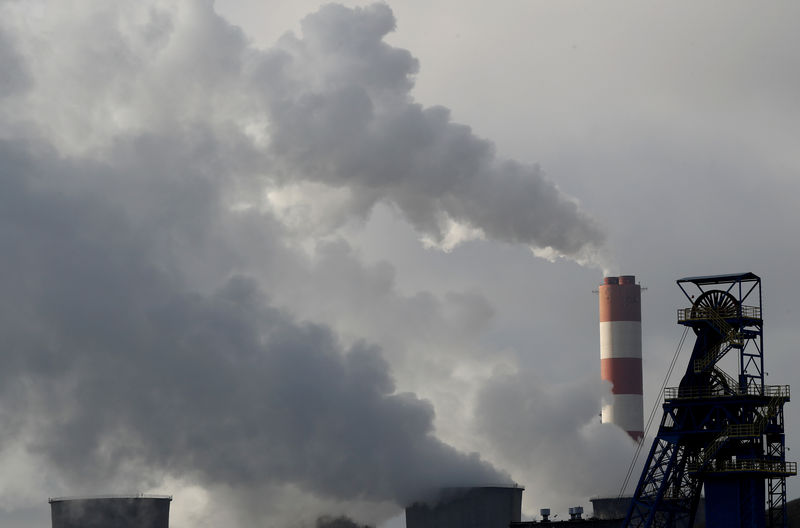By Daphne Psaledakis and Alissa de Carbonnel
BRUSSELS (Reuters) - The European Union urged its member states on Tuesday to accelerate efforts to meet their 2030 climate goals after a review showed them falling short in some areas as the bloc's leaders prepare to debate going carbon-neutral by 2050.
With the mid-century target on the agenda at an EU summit this week, the European Commission's audit showed the 28-nation bloc on track to meet its headline pledge of cutting emissions by 40% by 2030.
However, the EU executive said nations were lagging in some big polluting sectors such as agriculture and transport as well as targets on energy saving and renewable energy use - a potential hurdle in the push by some states to ramp up the bloc's long-term climate goals.
"With these plans, we have all the tools needed to achieve the 2030 targets, but that is not enough," Climate Commissioner Miguel Arias Canete told reporters, calling for more details in the final plans due by year-end.
"Going to climate neutral in 2050 is a signal that the member states should give."
The assessment will play into what is expected to be a difficult debate among EU leaders over what signal to send businesses on the pace of emissions reductions to come.
U.N. negotiators and several EU nations are pushing for the bloc to show leadership by increasing its carbon reduction goals ahead of global climate talks in September to limit global temperatures to 1.5 degrees Celsius.
But many governments worry doing so will hurt competitiveness and cost jobs, saying they should focus on meeting existing targets on reducing global warming emissions.
ZEROING OUT EMISSIONS
With Germany, the EU's most populous country and biggest economy, joining a growing number of EU nations to back zeroing out emissions by mid-century, momentum has built for leaders to agree the lofty 2050 target at this week's summit.
Along with Germany, which is mindful of its powerful automotive sector, eastern European nations have been most cautious about steeper emissions cuts due to concerns over the economic impact.
But Hungary and Slovakia have signed up to the pledge, according to EU sources, bringing the number who back the initiative to 22 of the 28 member states.
However, Tuesday's preliminary review said the EU, the world's third-largest greenhouse gas emitter, is falling short on slashing emissions in big employment sectors such as transport, farming and buildings that account for more than half of the EU's total.
Under current national draft plans, it said the EU is 2 percentage points short of its goal of cutting emissions by 30% compared to 2005 levels in such sectors outside the EU's cap-and trade Emissions Trading System (ETS) regulating industry.
Only a few member states have proposed contributions high enough to meet targets on energy efficiency measures, it said.
The bloc is also short of its goals on solar, wind and other renewable energy use. Under current plans, the share of renewable energy is expected to be 1 to 2 percentage points below the 32% target as a share of total power in the bloc.
"Continuation of existing policies at the same scale would not be sufficient to meet these targets," the Commission assessment said.

Implementing these goals, however, could allow the EU to cut overall emissions by 45% by 2030, EU projections show.